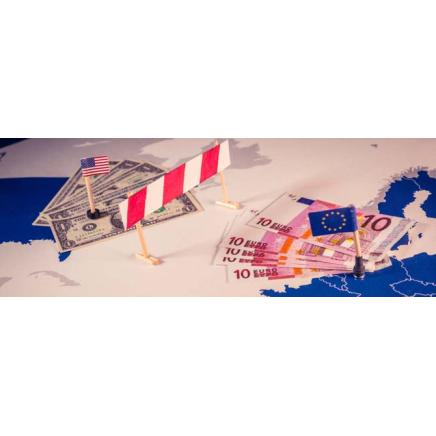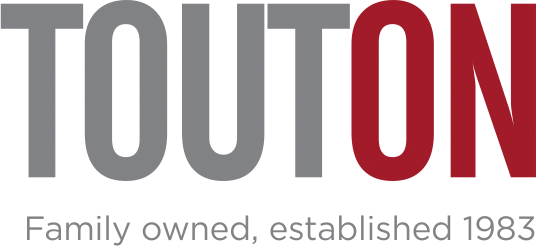US Hits France with More Wine Tariffs

US Hits France with More Wine Tariffs
The new year begins where we were before Covid – with a wine industry facing economic turbulence.
article originally featured in Wine-searcher Jan 5th 2021
If you are in the US and you love French wine, go shopping right now. The Trump administration decided France hasn't been punished enough, so the US smacked French wines, Cognac and Armagnac with more tariffs on December 31.A prior round of tariffs in a dispute over aircraft hit all French, German and Spanish non-sparkling wines at or below 14 percent alcohol with a 25 percent tariff. The new wine tariffs are aimed only at French and German wines but, realistically, only French wines will be affected, because the new 25 percent tariff will be slapped on still wines more than 14 percent alcohol; there are few German wines in that category. It's not clear why Spain avoided the Trump administration's wrath this time, but gracias a Dios. The new tariffs also close a loophole that some European producers of wines under 14 percent alcohol (like Mirabeau, which we profiled recently) were using to avoid tariffs. Previously, wines could be shipped in a tanker and bottled in the US and would not be subject to tariffs. Now, with no maximum container size, they will be.
As for Cognac and Armagnac, they are targeted by a new 25 percent tariff on "spirits obtained by distilling grape wine or grape marc" from France and Germany only. Single-malt Scotch whiskies and Irish whiskies from the UK (Bushmills only, basically) were already subject to a 25 percent tariff. US sales of wines affected by the previous tariffs were down 53 percent, according to Ben Aneff, president of the US Wine Trade Alliance. Americans have been trading down because of the tariffs. Restaurants that were selling Chablis are selling Petit Chablis instead; media that previously praised Burgundy Chardonnays have found new virtue in cheaper Aligotés. Now US retailers and restaurateurs may try to promote similar downgrades in Bordeaux, which had largely avoided the prior round of tariffs. There was no warning about the new tariffs, which take effect on January 12, and – like in 2019 – there is no exemption for wines that US importers have already paid for that have not yet arrived. "One of the most disturbing things about this is the time frame," Aneff told Wine-Searcher. "There are US distributors who have already shipped products, that are on the water, that are going to be hit with tariffs. They were tariff-free when they were purchased. This hurts only US companies."
Calling for change
However, just eight days after the new tariffs, assuming that there is no coup, Joe Biden will take over the US Presidency, and that could change everything.
Two well-known chefs, Kwame Onwuachi and Alice Waters, wrote an op-ed for the Washington Post last week one day before the new tariffs were announced, with the headline: "Joe Biden can save restaurants with the stroke of a pen. Here's how." They suggested ending the tariffs already placed on European wines as well as cheeses, olive oil and other food products, because the higher price for those items is hurting US restaurateurs more than the European producers.
Biden may not choose to end all of the tariffs on European wines and foods right away because the dispute over Airbus subsidies that led to them dates all the way back to 2006. It escalated under Trump, but the US Trade Representative filed its case with the World Trade Organization under George W Bush and the dispute simmered without resolution throughout the entire Obama administration, where Biden had a front-row seat.
But it is possible that Biden will undo these most recent tariffs relatively quickly. Democrats have been publicly speculating about an early Biden executive order undoing all last-minute Trump executive orders; the new tariffs might qualify.
Wine importer Lyle Fass is hopeful but pessimistic.
"Here is my take: tariffs are going to be there for all of 2021," Fass told Wine-Searcher. "The 14 percent [benchmark] might be removed. Biden might remove all executive orders done after January 1. But no one is sure whether this is major enough for Biden to cancel it out on day one. The wine industry has the perception that it's a rich-guy world. There's still this image if you look on Twitter that 'the elites can pay more for wine'. Biden might not want that to be one of his first moves."
Slow process
A complication is that Biden's nominee to be US Trade Representative (USTR), Katherine Tai, will need to be approved by the US Senate. Tai, who speaks Mandarin, is a China expert and is not a controversial nominee, but Republicans in Congress have not shown that they will act quickly on anything Biden wants to do.
The USTR must act in February and again in August to reconsider the existing tariffs. Aneff doesn't think the USTR will be ready to make changes in time for the February deadline.
"The time frame is complicated," Aneff told Wine-Searcher. "Biden's nominee for USTR is highly respected on both sides of the aisle. I think she'll be able to do a good job representing US interests. But it is almost a certainty that she will not be approved by the time that the February [decision] for these tariffs comes about. It will be dangerous to assume that she will take office before May or June. There's a chance that the team at USTR will need to wait until a good portion of the Biden team is in place. That's one of the jobs that we'll have. We must convince the Biden administration that rather than waiting for their trade team to be fully put in place, the damage from these specific tariffs is so significant to businesses around the US, including restaurants, that they must find a way to influence the Europeans to change behavior in ways that do less damage to US businesses. These tariffs do more damage to US businesses than to the EU. We can't wait another six months. They have it in their power. It will be a big ask, but that's the task of our industry right now."
The current USTR's rationalization for the tariffs is that Europe isn't being punished enough. The WTO authorized the US to slap $7.5 billion in tariffs on the EU for subsidizing Airbus. It later allowed the EU to slap $4 billion in tariffs on the US for subsidizing Boeing. The USTR document complains that the EU calculated its product list for its $4 billion in tariffs during the pandemic, when exports are down, thus allowing it to sanction more products. "Effervescent" wine – vins de pétillant – were included in the USTR tariff list for the first time, but Champagne and other fully sparkling wines continue to get a free pass. LVMH chairman Bernard Arnault, one of the world's richest men, was said to have lobbied Trump personally to keep Champagne off the list previously. "They need ammo," Fass said. "If you start a trade war, you have to leave some moves. I have a feeling that if everything goes to crap, they will tariff the hell out of Champagne. That's the last arrow in their quiver. If you tariff Champagne at 100 percent, you'll get everyone's attention. Bernard Arnault is the second-richest man in the world. The whole thing would end tomorrow if you just use my idea. Get rid of all the other wine tariffs and just put all your apples in one basket, large production Champagne. We want to end the trade war. If you attack the richest man in France with a 100 percent tariff, it will end very quickly."


